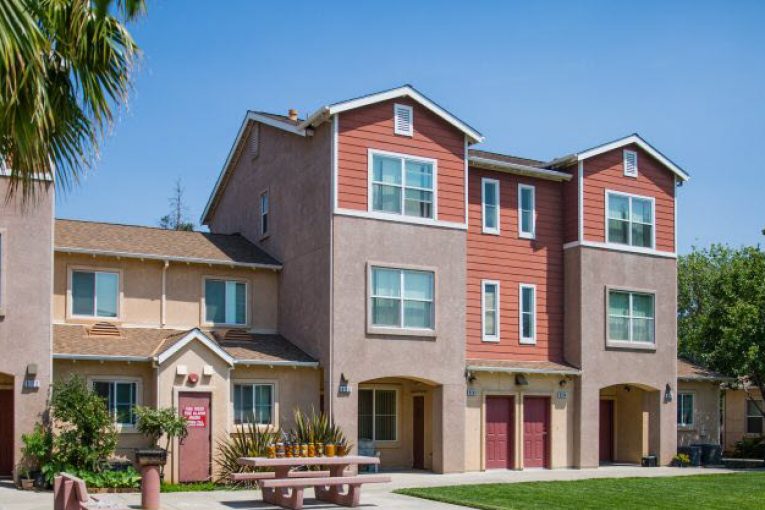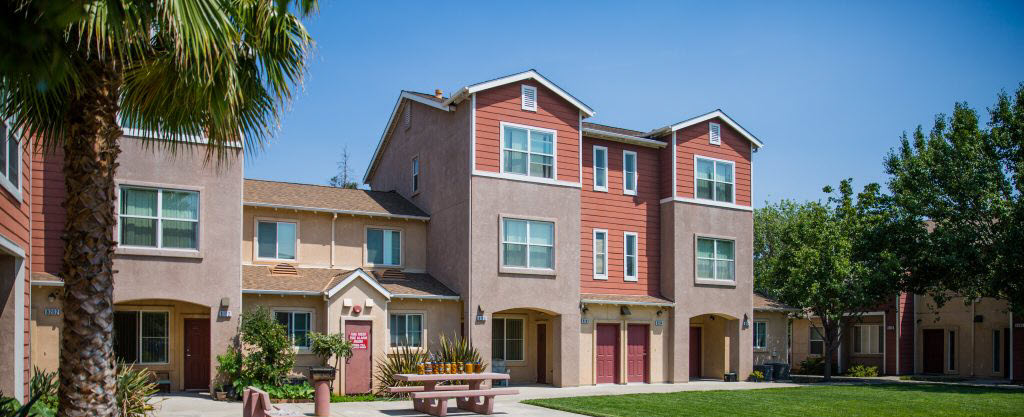

By Ellen Kolarik
There is no one simple solution to the housing shortage in Davis. We need to make many changes in our general plan to encourage higher density housing and we as a community need to accept both infill and peripheral growth. But a well-funded Housing Trust Fund (HTF) is also an essential part of the solution.
A HTF is operated by a city to support the creation and provision of affordable housing. While it is true that supplemental funding is available for affordable housing from federal, state, and private programs, these sources are never sufficient, never reliable, and never ongoing among themselves and are highly competitive. A well-founded HTF can fill these gaps allowing the creation of emergency, transitional housing, and permanent supportive housing. It can provide funds to refurbish existing structures for low-income housing. It can purchase land needed for an affordable rental project. And it can help keep families stay housed when 1 or 2 missed rent payments put that family at the brink of eviction.
A HTF is not just a useful tool to support rental housing. It can help lower and median income individuals and families get their foot into the housing market so that they can start building generational wealth. For example, it can fund a Down Payment Assistance Program (DPA) for first-time home buyers (many of whom are our adult children who wish  to continue to live in our city) hoping to get their foot into the housing market. And it could provide home maintenance loans to Seniors who are Davis residents struggling to keep up their homes.
to continue to live in our city) hoping to get their foot into the housing market. And it could provide home maintenance loans to Seniors who are Davis residents struggling to keep up their homes.
How much money is needed in the HTF?
Of course, that depends on the programs you wish the HTF to provide. These are some examples with rough numbers.
Emergency Rental Assistance program (ERA): An ERA program in the HTF funded with $400,000 a year would allow the City to provide a $1000 grant to 40 families at risk for eviction or loss of utilities. This equates to $6 per resident of Davis per year.
Down Payment Assistance program (DPA): A HTF starting balance of $1,000,000 could provide 50 no-interest down payment loans of no more than $20,000 over the course of one year. This equates to $15 per resident of Davis per year. In one possible program design, the DPA loan would be repaid along with a percentage of the equity earned when the home is sold. Once established, a DPA program can earn income for the HTF.
Affordable Housing Gap Funding: Mutual Housing built the 37-unit Adelante complex on 5th street. Publicly available reports state that the projected cost of the complex was $23,611,759. The developer anticipated a permanent loan of $9,392,144 and tax credits of $10,651,215 which left a funding gap of about $3,600,000. Using this example as a guide and given the recent very rapid rate of increased construction costs, a HTF would need to be funded with at least 4-5 million to build an affordable complex each year. This equates to $60-$75 per resident of Davis per year.
The irony is that our city already has a HTF, but it does not have a stable and significant funding source. Given our current financially strapped city budget, it is unrealistic that the money needed to make even one of these projects happen could be pulled from the General Fund. For our city to provide the affordable housing we need, we need to tax ourselves. The solution to our housing problem lies with all of us not just with our city government or developers.
At the May 2023 council meeting, the City Council opened the door to a city-wide general tax to help fill the City’s budget gap. As a community, we need to encourage the council to proceed with a tax and in addition demand that the city make a commitment to direct a significant percentage of this revenue earned to our HTF.
We have so much work to do in this community and we will not achieve our goals overnight. But with ongoing funding, our council will be empowered to do the work of supporting the creation of the housing we so desperately need.
Ellen Kolarik is Co-Chair Interfaith Housing Justice Davis

It is not presently possible to tax residents. Davis voters can choose to tax properties, or increase the sales tax. With 25,000 households, that would be a parcel tax of about $150 per parcel, assuming they’re all taxed alike.
I don’t have a problem with paying a nominal parcel tax for housing purposes. I just think it would take a very substantial property tax increase to fund the things you want.
While I like the idea of having local funding, I still believe the best approach would be to work with the legislature on a new tax increment.
I’d like to thank Dan Shor for his comment. I’d like to emphasize that the community needs to speak out about what programs it wants and is willing to pay for through a tax measure. While it is true that in an ideal world, I would want all of these programs, my goal is to encourage our community to think about this issue now while a revenue measure is being authored so that the measure includes funding for the housing programs people support.